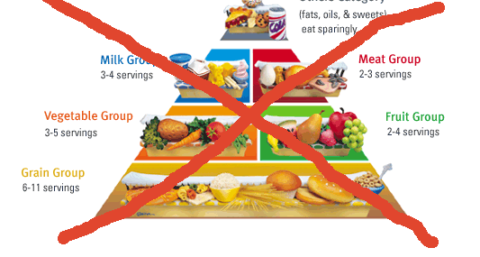David Friedman on the difficulty of “playing safe”:
It’s a no brainer. Just play safe
It is a common argument in many different contexts. In its strongest form, the claim is that the choice being argued for is unambiguously right, eliminates the possibility of a bad outcome at no cost. More plausibly, the claim is that one can trade the risk of something very bad for a certainty of something only a little bad. By agreeing to pay the insurance company a hundred dollars a year now you can make sure that if your house burns down you will have the money to replace it.
Doing that is sometimes is possible but, in an uncertain world, often not; you do not, cannot, know all the consequences of what you are doing. You may be exchanging the known risk of one bad outcome for the unknown risk of another.
Some examples:
Erythritol
Erythritol was the best of the sugar alcohols, substitutes tolerably well for sugar in cooking, has almost zero calories or glycemic load. For anyone worried about diabetes or obesity, using it instead of sugar is an obvious win. Diabetes and obesity are dangerous, sometimes life threatening.
Just play safe.
I did. Until an research came out offering evidence that it was not the best sugar alcohol but the worst:
People with the highest erythritol levels (top 25%) were about twice as likely to have cardiovascular events over three years of follow-up as those with the lowest (bottom 25%). (Erythritol and cardiovascular events, NIH)
A single article might turn out to be wrong, of course; to be confident that erythritol is dangerous requires more research. But a single article was enough to tell me that using erythritol was not playing safe. I threw out the erythritol I had, then discovered that all the brands of “keto ice cream” — I was on a low glycemic diet and foods low in carbohydrates are also low in glycemic load — used erythritol as their sugar substitute.
Frozen bananas, put through a food processor or super blender along with a couple of ice cubes and some milk, cream, or yogurt, make a pretty good ice cream substitute.1 Or eat ice cream and keep down your weight or glycemic load by eating less of something else.
It’s safer.
Lethal Caution: The Butter/Margarine Story
For quite a long time the standard nutritional advice was to replace butter with margarine, eliminating the saturated fat that caused high cholesterol and hence heart attacks. It turned out to be very bad advice. Saturated fats may be bad for you — the jury is still out on that, with one recent survey of the evidence concluding that they have no effect on overall mortality — but transfats are much worse. The margarine we were told to switch to was largely transfats.2
“Consumption of trans unsaturated fatty acids, however, was associated with a 34% increase in all cause mortality”3
If that figure is correct, the nutritional advice we were given for decades killed several million people.
1. Bananas get sweeter as they get riper so for either a keto or low glycemic diet, freeze them before they get too ripe.
2. Some more recent margarines contain neither saturated fats nor transfats.
3. “Intake of saturated and trans unsaturated fatty acids and risk of all cause mortality, cardiovascular disease, and type 2 diabetes: systematic review and meta-analysis of observational studies”, BMJ 2015; 351 doi: https://doi.org/10.1136/bmj.h3978 (Published 12 August 2015)






